If you’re reading this, you’re probably already considering buying a pop-up tent trailer.
Whether or not this is your first RV, you should know all the facts before deciding or making a purchase.
An informed buyer is a happy one. You want to know exactly what you’re getting into before taking the plunge.
What will maintenance be like?
How does it feel to sleep in it?
These questions and many more will be answered in this review. Then you can decide if pop-up tent trailer ownership is the right choice for you.
Table of Contents
- 1. Varied Price Range
- 2. Tips For Buying Second Hand
- 3. Further Costs
- 4. Thin Walls
- 5. Ideal For Adventurous Campers And Active Travelers
- 6. Close Quarters
- 7. Basic Bathroom Facilities
- 8. Beginner-Friendly
- 9. Storage
- 10. Maintenance And Care
- 11. Tricky To Set Up And Take Down
- 12. Your Plans And Preferences
- 13. Renting Before Buying
- Conclusion
1. Varied Price Range
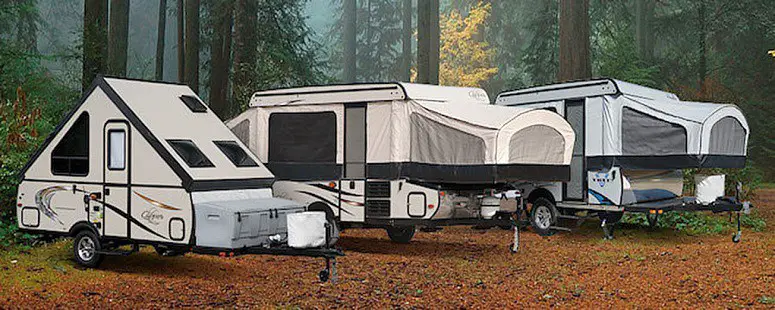
There are many factors that influence an RV’s price.
The type, condition, size, and extra features are just a few. Trailers are almost always going to be less expensive than motor homes.
Pop-up tent trailers are the most basic type of trailers, meaning they tend to be cheaper.
A standard pop-up tent trailer (new) can cost you from 4,000 to 13,000 dollars. Compare that to a new travel trailer, where prices begin at 8,000 dollars.
Motor homes can be worth over 100,000 dollars for advanced models.
It also depends on the brand, of course. Some of the most well-known manufacturers of pop up campers, such as Jayco, Aliner, Rockwood, and Sylvansport have rightfully earned their reputation. However, that comes with an increase in price for new purchases.
You can also find higher-end models, although of course, the price increases along with the extras. These types of pop up campers come with non-standard features, for example, front deck storage, or luxurious extras, such as heated mattresses.
Manufacturers usually publish video tours from their pop up campers on their websites. In a few minutes of watching these, you’ll get a general perspective on whether you like what they are offering.
Used campers can also vary significantly in price. If your ideal pop-up tent trailer is out of your budget, you might be able to find it for less secondhand.
2. Tips For Buying Second Hand
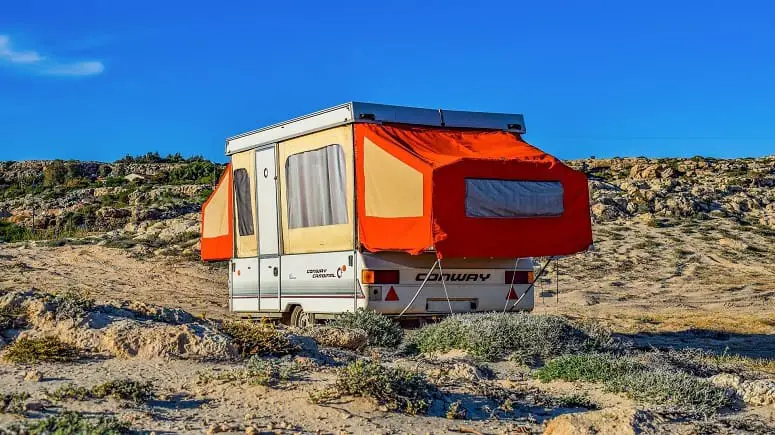
There are a few reasons you may be thinking of buying a used pop up camper.
If your ideal pop-up tent trailer is out of your budget range, you might be able to find it cheaper secondhand.
You may also be averse to shelling out full price for a brand new camper.
These reasons are valid, but you should also know what you are getting into.
Conditions can vary dramatically. Even if you save money on the purchase price, you can spend double that on repairs.
Here is a video covering what to look for in a second-hand tent trailer:
3. Further Costs
Buying the trailer itself is only the beginning.
Due to the compact nature of these trailers, there are items you will likely have to buy to save space. If you’re a former RV owner, you may already have some (if not all) of these things.
If the pop-up tent trailer is your very first RV, you will need to start from scratch.
Buy Miniature And Collapsible Items
Wherever possible, downsize.
Appliances, trash cans, toiletries—think small. Get a miniature BBQ unit for your pop-up tent trailer rather than a full size one. Tea-lovers can choose a collapsible tea kettle to fold away after use.
A mini coffee maker works just as well as a big one.
Collapsible trash cans won’t take up space and can be used in or outside of your trailer.
You get the idea, right?
Storage Supplies
Pop-up tent trailers can include built-in storage spaces, but they tend to have limited capacity.
There are creative strategies you can use to maximize the space available. A few investments early on can allow you to bring more than you expected on your trips.
Buy a towel rack to stick to the back of cabinets, to hold pot and pan lids. Alternatively, install basic wooden shelving for this purpose as in the photo. Get a hanging caddy to keep personal belongings by your bed.
Vacuum seal bags are ideal for transporting bulky items, like sleeping bags and pillows.
And sometimes, you can get by with keeping your fresh water tanks in your tow vehicle, instead of inside the pop up camper.
4. Thin Walls
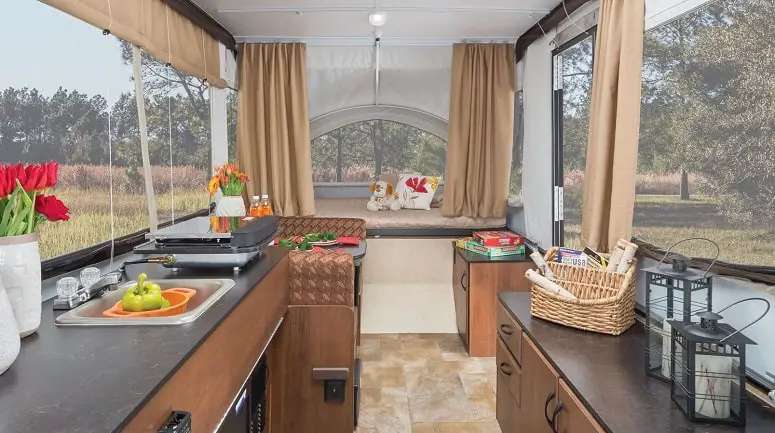
Pop-up tent trailers are light and compact.
Naturally, this means they have thinner walls than a motorhome or travel trailer. This especially applies to pop up campers with A-frame, where the walls cannot be anything but thin.
This is the case with both hard-walled and soft-walled models.
Luckily, there are A-frame offers from Aliner that have stronger walls and do a great job at keeping the elements outside. For example, check out the following video to see such a pop up camper being set up:

Climate Control
Think about climate control carefully before you choose a pop-up tent trailer.
Not all campers contain air conditioning units, heaters, or furnaces. If you’re unwilling or unable to buy a pop-up tent trailer with these features, be prepared.
Both high and low temperatures can hit your pop-up tent trailer hard. Thin walls mean less insulation against extreme cold and heat and you don’t want to end up baking (or freezing) in your camper.
But, there are special Arctic packages engineered for extreme cold. A simple propane heater can keep you warm during chilly nights.
Watch this video to learn tricks to stay warm:
Heavy-duty fans can help you beat the summer heat if you don’t have an AC unit.
A heated blanket can be an excellent way to keep you toasty in chilly weather, especially at night.
Noise
The thin walls of most pop-up tent trailers will not insulate against outside noises.
You might feel like loud neighbors at a campsite are living inside your trailer with you.
If you head way out into the wilderness, you can avoid this issue. Still, there are some sounds that are inescapable—like your generator.
You can select generators that are built to be quiet, but noise-sensitive individuals might still be bothered. If the thought of hearing the constant hum of a generator irritates you, perhaps reconsider a pop-up tent trailer.
Or buy earplugs!
5. Ideal For Adventurous Campers And Active Travelers
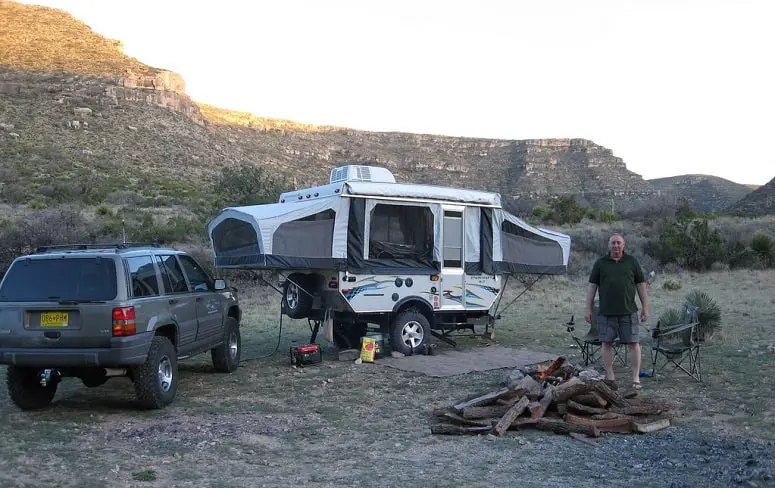
Popup tent trailers allow you to get the full camping experience, also known as boondocking.
Motor homes, camper vans, and other larger trailers can isolate you from the outdoors. But if it’s too cozy inside, you might be tempted to stay there. And what’s the point of going in the bush if you stay inside your camper to watch TV?!
These trailers, on the other hand, are just a few steps up from a tent. Solo pop-up tent trailers are basically tents on wheels! Park beside the forest river, and fall asleep to the mesmerizing noise.
Explore one with this video:
Your pop-up tent trailer offers as much (or as little) protection from the elements as you choose. You can unzip the pop-up tent to enjoy the fresh air and sleep under the stars.
There are very few restrictions when selecting a camping location with your trailer. You can find pop-up tent trailers that are capable of going off-road.
So long as your vehicle can travel through the wilderness, these types of trailers can too.
Campsites as well as national parks can have size restrictions for RVs, but pop-up tent trailers generally fall well under the maximum allowed length.
Like all trailers, pop-up tent trailers offer freedom for active travelers. If you’re eager to visit tourist attractions or scope local activities, you can. Leave your trailer at a safe campsite and take your car or truck out for a spin.
Hassle-free parking and adventure!
6. Close Quarters
Pop-up tent trailers can be just as suitable for families as they are for solo travelers.
It all depends on the size of the model you buy. Some have sleeping room for up to eight people when they are set up. Some trade sleeps for a well-designed dinette. And some are expandable, by offering ways to convert that dinette into a sleeping spot, or by extra space inside with expandable slideouts.
This all depends on the brand, so check the floor plan on the manufacturer’s website to see what’s included in your pop up camper—and for what you’ll have to pay extra. This doesn’t mean that privacy and space are guaranteed. In fact, privacy is a rare commodity in most pop-ups’ living area. You will have to be prepared for staying in close contact with your traveling companions.
You will be sleeping, eating, and living in a small living space. Unlike separate tents, everyone will share the same environment.
You might feel comfortable in a pop-up tent trailer for a few hours, but what about a few days?
It’s important to fully understand this aspect of pop-up tent trailers before buying one. Your spouse, the family, or whoever you’re traveling with also have to be prepared.
7. Basic Bathroom Facilities
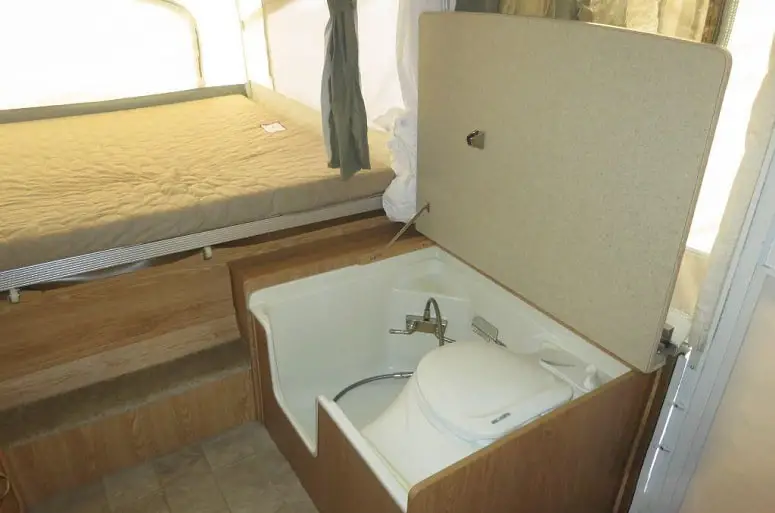
Bathrooms on pop up tent trailers can range from nonexistent to shower-inclusive.
But even the most advanced bathroom in a pop-up tent trailer cannot compare to a motorhome.
If your desired model does not have a bathroom, you have several options. You can purchase a porta-potty for trips into the wilderness.
Alternatively, you can take your pop-up trailer to campsites that have restroom facilities for everyone. Or, you can dig your own latrines at your campsite (if allowed).
Here are some tips about handling the call of nature while camping:
A multi-purpose privacy tent can make long camping trips easier. You can put porta-potties in them or use them as showers or changing areas.
If none of these choices sound appealing to you, consider a pop-up tent trailer with a bathroom.
Models that include bathrooms are usually larger in size and, of course, more expensive.
8. Beginner-Friendly
If you’ve never owned an RV before, it can be somewhat daunting to use one for the first time.
The good news about pop-up tent trailers is that they are beginner-friendly. They are light-weight, very towable, weather-resistant, and a lot of fun—if you have that adventurous spirit.
With large RVs, very few people are comfortable driving or towing one right away. Motorhomes, in particular, require a period of adaptation, due to their size.
Some types of RV even require that you get a special license.
However, pop-up tent campers can be towed by most vehicles (ATVs excluded, of course). They are light and compact, which makes the adjustment process easier than for a larger trailer.
NOTE: Know your vehicle’s maximum tow weight. Some models of pop-up tent trailers may be too heavy for your car. Make sure the baseline configuration does not even approach this maximum because you will be filling your pop up camper with other stuff after purchase, which will increase its weight and put additional strain on your tow vehicle.
You will have to practice handling your pop-up tent trailer beforehand. Even if you’re familiar with towing, you need to get used to how your specific trailer handles.
Parking, reversing, and braking are different when you’re towing a trailer. The same goes for making turns, accelerating, and driving in bad weather.
When towing a trailer of any type, develop the habit of checking your hitch. Examine it before you leave, at rest stops, and when you reach your final destination.
Pop up camper trailers also make for stress-free route planning. One major downside of traveling with a big RV is finding friendly routes.
Bridges that have weight restrictions and overpasses with height restrictions can cause long detours. Pop-up tent trailers do not usually exceed such limits.
9. Storage
The complications of storing an RV can intimidate prospective owners.
Your vehicle has to be kept somewhere appropriate when it is not in use.
Convenient Storage
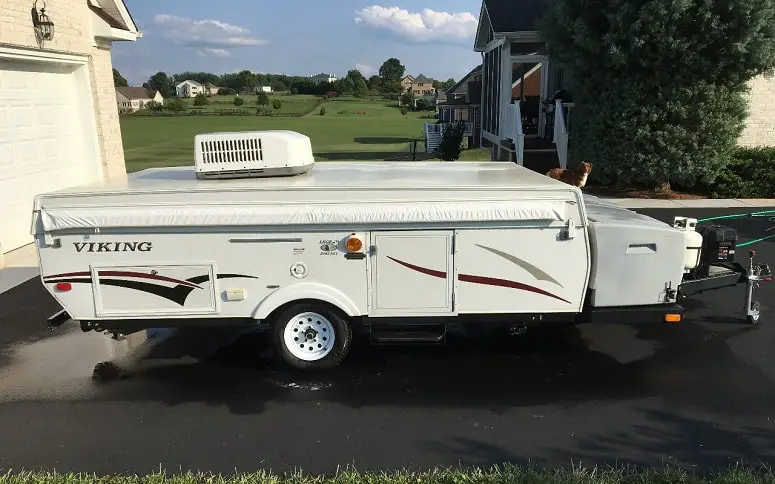
Pop-up tent trailers are among the most convenient RVs to store.
When folded, most models take up little space. If you clear out your garage, your pop-up might fit inside. If not, it can be left covered in your driveway or yard.
For those of you who live in apartments, you may have to find a storage facility. You are still likely to pay less since your pop-up tent trailer will not require a big unit.
If possible, try to keep your investment indoors when not in use.
Even when covered, pop-up tent trailers can sustain damage from harsh weather conditions.
Pre-Storage Prep
Taking the time to prep your trailer for storage is a necessity.
Pop-up tent trailers may be simple, but they are not self-maintaining! You will have to clean it thoroughly and ensure it is protected against pests.
Mice can be destructive to pop-up tent trailers, chewing through canvas. Ensure that holes are patched up or caulked prior to storage.
Check out these tips to keep your RV free of rodents:
Get your trailer as empty as possible before you store it. Take out valuables, cloth items, and all food and drink. Make sure it is not wet before you put it away. Leaving a pop-up tent trailer folded up wet will cause irreparable water damage.
10. Maintenance And Care
Pop-up tent trailer maintenance involves more than you might expect.
Neglecting to care for your trailer correctly can shorten its lifespan.
It can also be dangerous for you to allow it to fall into disrepair.
Preventing Decay, Mildew, And Mold
Pop-up trailer tents should never be stored wet.
This encourages mildew and mold to thrive, which can be dangerous to breathe.
It also weakens the canvas significantly. The next time you use it, you may find the fabric rips before your very eyes as you’re opening up.
Not a pretty sight, especially after a long journey to the campground with grizzly kids in tow. Can you tell I’m writing this from experience?
Cleaning the pop-up tent fabric is important too, again, to discourage mildew and mold from starting or spreading.
Repairing Pop-Up Tent Damage
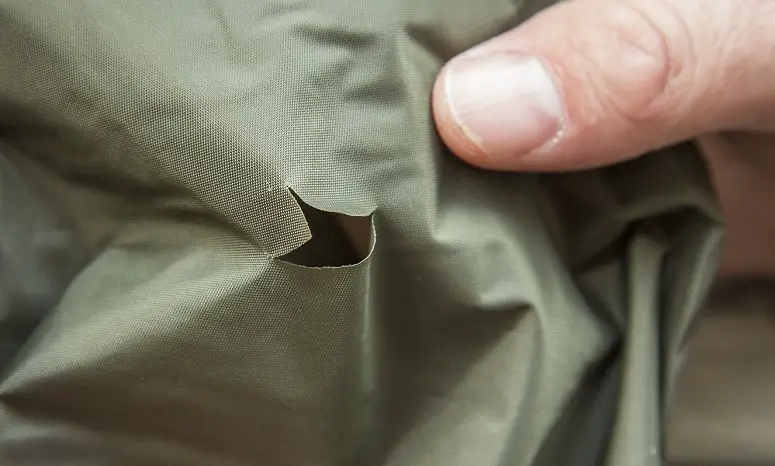
Inspect your tent fabric for any holes or tears.
It’s best to sew or patch up damaged fabric as soon as you notice it. A little rip can turn into a big problem if left unattended (see my comment above).
Monitor Tire Condition
Always check your trailer tires for signs of wear and tear. Tires that look flat, lumpy, or thin should be replaced.
On average, trailer tires last for five years.
Moving Parts
Pop-up trailer tents have a lot of separate parts. It’s important to keep all these parts lubricated and functional. If a part breaks, it can compromise the whole system.
If anything is unfolding stiffly or seems broken, investigate the issue.
11. Tricky To Set Up And Take Down
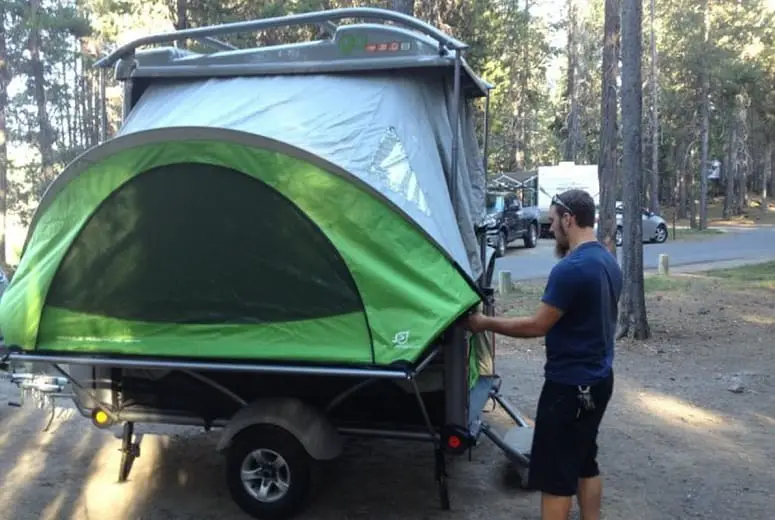
The portability of pop-up tent trailers comes at a cost: the setup.
Unless you have a basic solo pop-up trailer tent, this can take time. Packing it all up again at the end of your trip takes just as much time, if not more.
All this involves physical effort. Many pop-up tent trailers have hand-crank systems. Support poles for the tents have to be put into place. The interior as well as the exterior has to be fully unfolded.
This work will need to be done even when the weather isn’t cooperating. Whether it’s hot, raining, or cold you will still have to set up your home from home. Don’t forget the necessary maintenance!
The canvas of your pop-up tent trailer will have to be dry before you fold the whole thing up. Or re-opened to dry when you arrive home.
Your utilities are DIY with these trailers.
The generator has to be safely hooked up.
If your trailer doesn’t have a bathroom, the facilities (e.g. privacy tent, RV toilet, and porta-potty) must be readied.
If all of this sounds overwhelming, reconsider a pop-up tent trailer. If you have physical limitations and plan to travel solo, or as a single adult with young kids, this type of trailer might not be for you.
If you want to get an idea of what setting up a pop-up trailer looks like, check this out:
12. Your Plans And Preferences
Before you choose a pop-up tent trailer, know what you want. There are questions you need to answer before making the final purchase.
New Versus Used
If you want to play it safe, buy a pop-up tent trailer new.
You don’t have to worry about unexpected problems cropping up after purchase, as most come with a warranty.
You can invest in an extended warranty with the manufacturer in case of future problems.
If you feel confident in screening secondhand pop-up tent trailers, go ahead. If you find a bargain and are willing to shoulder the cost of repairs, secondhand shouldn’t be a problem.
Destinations
What are your dream destinations?
Do you plan to go boondocking or prefer to stay at campsites with resources?
Check that the trailers you’re considering are compatible with your plans.
An off-road pop-up tent trailer is ideal for heading out into the wilderness. If camping rough isn’t your thing, you don’t have to compromise too much on comfort.
If you are a sports enthusiast, select a pop-up tent trailer that suits you. For example, one that is capable of carrying canoes, kayaks, or other equipment.
Personal Needs
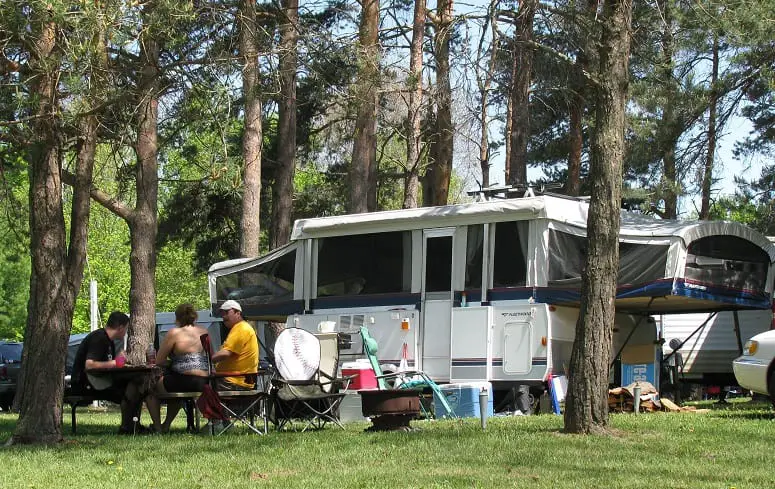
Be honest with yourself about what you need.
Remember that pop up tent trailers come in a range of shapes, sizes, and forms. Amenities can be basic or advanced.
If a smaller model is too cramped for you, look at the next size up. If the thought of living without a bathroom is unbearable, don’t check trailers without them.
13. Renting Before Buying
The last step you might want to think about taking before you buy a pop-up trailer tent is renting one.
Extensive research, no matter how helpful, can’t compare to the real thing.
You can check out RV rental websites and choose your desired trailer model. Just like with purchasing, pop-up tent trailers are less expensive to lease than motor homes or bigger trailers.
Renting will give you a good idea if a pop-up tent trailer is right for you and your needs.
It will also give you the opportunity to get used to towing before you buy one of your own.
Treat the rental as if it’s your own while you have it—you can even practice cleaning the exterior!
You can experiment by renting different sizes and types of pop-up tent trailer (e.g. hard-walled or soft-walled).
Conclusion
I hope that we helped you feel closer to deciding if a pop-up tent trailer is right for you. Choosing to buy an RV of any kind is a serious decision.
Pop-up tent trailers have plenty of benefits, but this doesn’t mean they are for everyone. You need to be aware of the negatives as well as the positives before you pay up.
Did this article help you? If you have used a pop-up tent trailer, is there anything else you think potential owners should know? Share your tips and stories about your experiences in the comments.
If you find these suggestions useful, share the article!



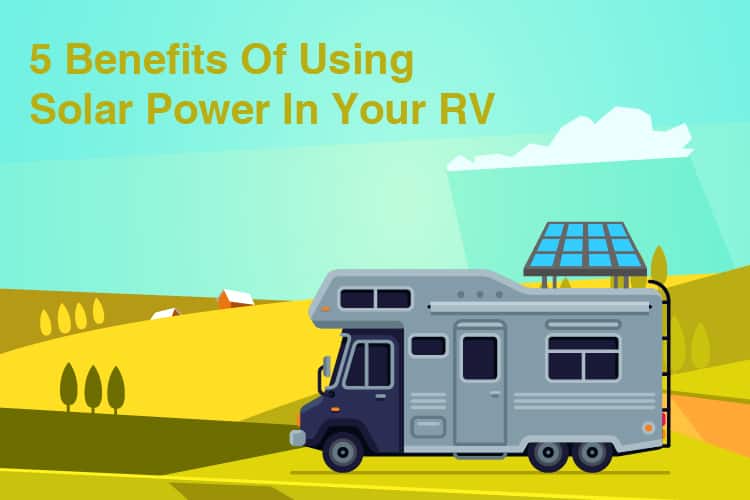
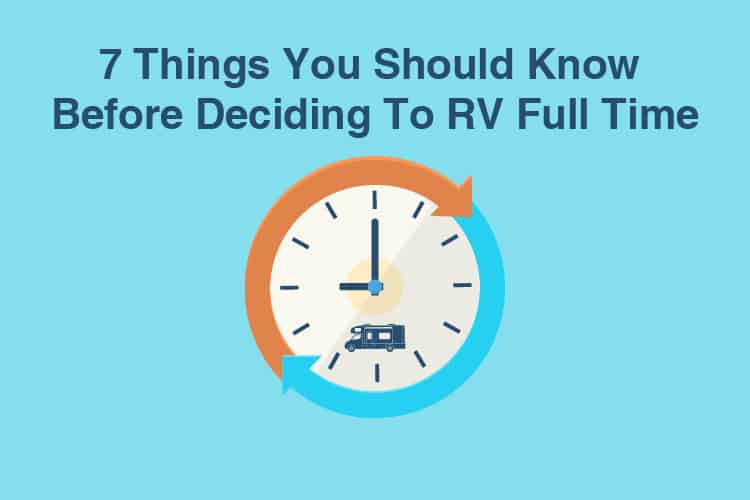
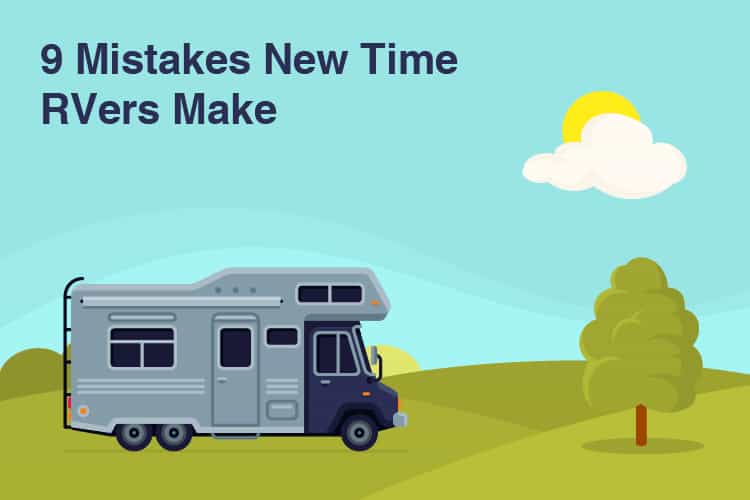
Thank you for your article on Pop up tent trailers. A first time owner and loving it! I love how open, spacious and full of light this camper is. I find it’s low profile and light weight very nice for towing with my Jeep Cherokee. I have the freedom to wander at will and spontaneous wandering is what I find so liberating.
Great article and great videos. Thank you for posting this. You gave great insight.
It’s interesting that pop-up tent trailers provide privacy with your travel companions. My uncle wants a trailer to bring when he goes on his week-long hikes. I’ll have to show him this so he can decide what kind of trailer to get.
This was very helpful. My wife and I are considering a pop up tent and this gives a lot of good info on the pros and cons of buying a new or used pop up. I don’t think it will be long and we will be purchasing a pop up for future use. All the videos were very helpful in determining what to watch for when buying a used pop up.
Thank you! I currently have an obsession of prepping. I also want to get into camping to get over my bug fear… Thank you for writing this. It was entertaining and had a lot of good advice.
We love our pop up camper! We have 2 kids and my husband and I, we upgraded from a tent. So far we’ve taken 4 trips, going from nice campgrounds to rustic as well. The only downside is the fridge is very small so we still have to take coolers, but we are investing in a fridge that will sit on our outdoor table for the meat, veggies and fruits. We are looking forward to future trips and have bought such things as outdoor lights, an outdoor table, and a small table top grill, ours came with an outdoor carpet, and attachable stove top for the outside. Recently we had an issue with the power, the top light still works, the fuses are good but for some reason the outlets don’t, so we’ve resulted to extension cords which kind of sucks. We have a small tv, dvd player, coffee maker, in the camper which is all very helpful.
Barbara McCrea Answering because altho not camping now, had 55 yrs in everything from tents to big tent trailer that slept 8, small rv, truck camper, A frame pop up, & a trailer. Raised 3 kids plus whomever else came along in the big tent trailer. They’re tops for value, environmentally friendly, adaptable, go in about any place, you don’t HAVE to have electricity & bathroom always. Try camping in Yellowstone in a 22 site cg. A Wy mountaintop 10,000 ft up. Newfoundland shores where Vikings landed. Next to Mt. Denali. Most have heaters, electricity, frig, air if you must, good storage. RV cg’s noisy, big rv’s 4 ft away. Get oversize tires so you can go waay back in where rv’s fear to go. Carry a canoe on top, kids bikes on bumpers, kayaks on cartop. You’ll be doing your kids a huge favor. Marine battery very handy, especially with kids. Take along a screen house, comfy chairs, and you will see America in an incomparable way. A lot more maintenence- free than a big rv.
This was extremely helpful! Thank you!
They really get hot and the air conditioner do not work with them efficiently. If you are going to use it during hot summer then be ready for it.